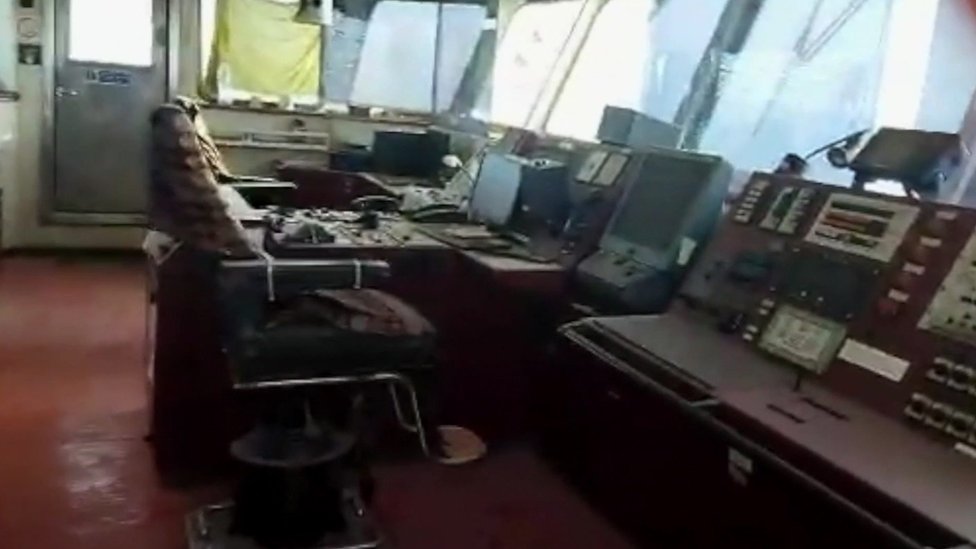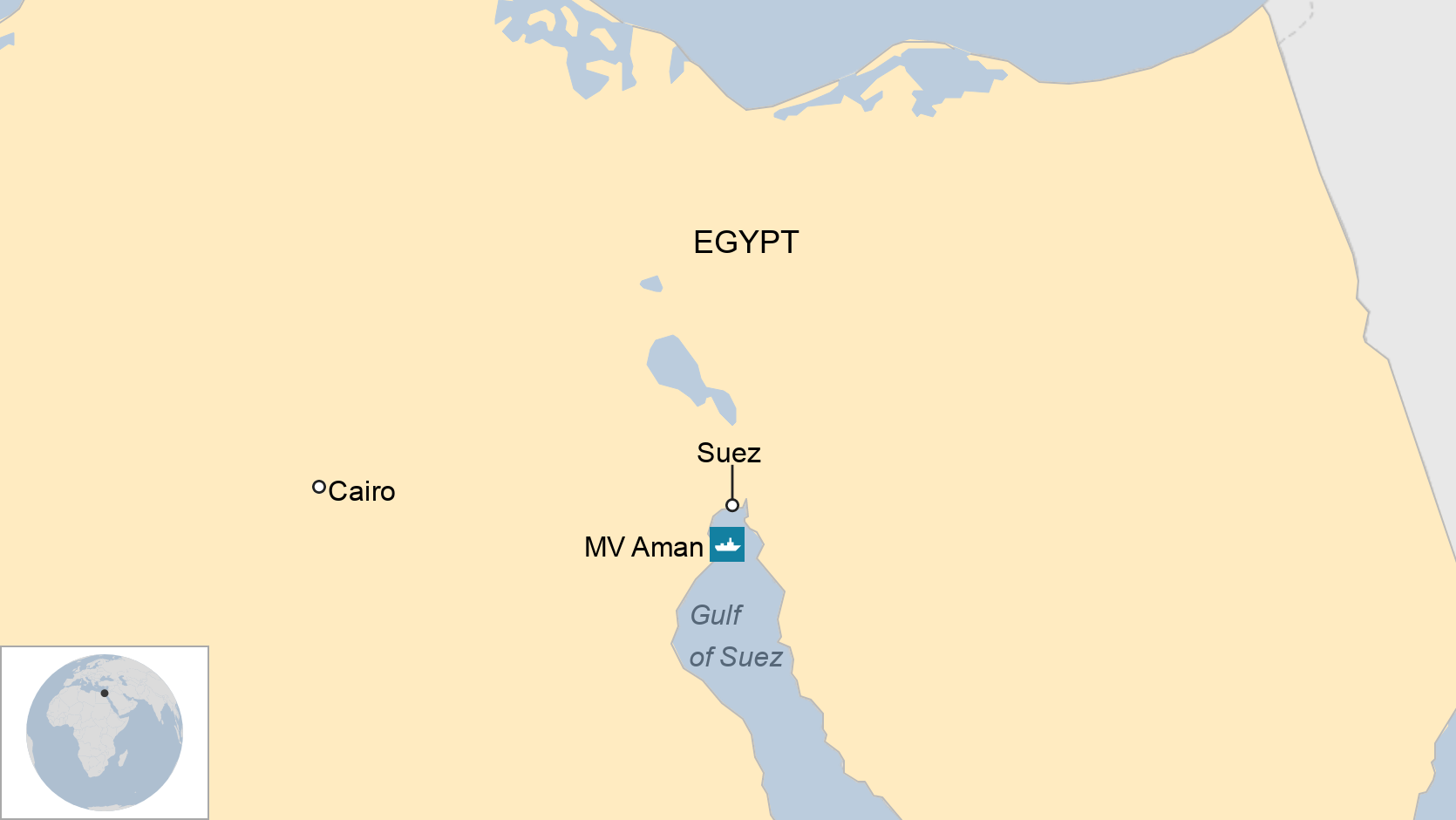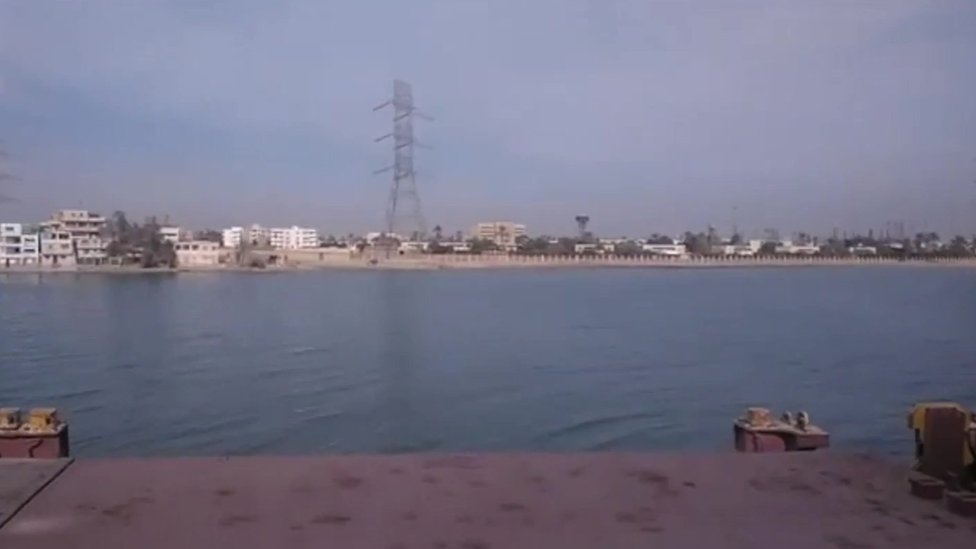Kairo –
Mohammaed Aisha was finally able to come home. (Mohammed Aisha)
Mohammed Aisha joins the “cursed” ship MV Aman, on May 5, 2017.
Today, after spending nearly four years on a ship and being stranded off the coast of Egypt, he was released and flown home to Syria. So how does he feel?
The answer, sent by text message from the plane on the tarmac at Cairo airport, was brief.
“Relief. Joy.”
And before long he sent a voice message.
“How do I feel? Like I just got out of prison. I’ll finally go back to my family. I’ll meet them again.”
The sentence marked the end of the ordeal that had weighed on Mohammed’s physical and mental health. For four years, he had to live without electricity, sanitation, or friends.
The ordeal began in July 2017, when MV Aman was detained in the port of Adabiya, Egypt. The cargo ship was detained because the validity period of the classification certificate and safety equipment had expired.
It should be easy enough to solve the problem, but the ship’s contractor in Lebanon is not paying for the fuel and the MV Aman owner in Bahrain is running into financial problems.
With the ship’s captain, an Egyptian, ashore, the local court declared Mohammed, the ship’s chief officer, the legal guardian of MV Aman.
Mohammed, who was born in the Syrian Mediterranean port city of Tartus, said he was not told what the order meant and only found out months later, when the rest of the crew started leaving.

Anjungan Aman, a 4000 ton container ship. (Mohammed Aisha)
The four years passed. Mohammed watched as ships sailed past him, into and out of the nearby Suez Canal.
When the giant container ship Ever Given hit the canal recently, he counted dozens of ships waiting for the congestion to subside.
He even had time to see his brother, a fellow sailor, sail past him more than once. The two brothers spoke on the phone but their positions were too far away to even wave at each other.
In August 2018, he received news that his mother, a teacher who taught him English very well, had passed away. That is Mohammed’s low point.
“I’m seriously considering suicide,” he told me.
In August 2019, Mohammed was alone – accompanied by only the occasional guard – and was trapped on the boat without diesel and, as a result, without electricity. Egyptian law obliged him to remain on the boat and he was not paid, was discouraged and felt increasingly unwell.
He said the ship was like a grave at night.
“You can’t see anything. You can’t hear anything,” he said. “You’re in a coffin.”

BBC
In March 2020, a storm threw Aman from his berth. The ship drifted for eight kilometers, and finally ran aground several hundred meters from the shoreline.
Mohammed was scared for a moment, but thought it was an act of God. Now he can swim ashore every few days, buy food, and recharge his phone.
However admirable Mohammed’s story, what he experienced was not unique. In fact, there are more and more cases of seafarers being abandoned.

Mohammed will have to swim ashore if he needs drinking water or buying food. (Mohammed Aisha)
According to the International Labor Organization, there are more than 250 active cases worldwide where crew members have been simply abandoned. The organization said 85 new cases were reported in 2020, twice as many as the previous year.
Meanwhile, at Iran’s Assaluyeh port, 19 crew of the Ula bulk carrier, mostly Indian, went on a hunger strike after their ship was abandoned by its owner in July 2019.
A crew member recently told shipping journal Lloyd’s List that the situation on the ship was “very critical”, with widespread depression and seafarers’ families running low on money.
“The first time I encountered one of these cases, I was in shock,” said Andy Bowerman, director of Mission to Seafarers for the Middle East and South Asia.
From his office in Dubai, he has seen this happen many times, usually for a combination of the same reasons.
“We’re currently working on one case, where the company had a large mortgage on the ship, but their debt far exceeds that. So it’s sometimes easier to tell the crew to anchor anchor and almost literally just walk away.”
Aman’s owner, Tylos Shipping and Marine Services, told BBC that they had tried to help Mohammed but they had no choice.
“I can’t force the judge to revoke the legal guardianship,” a representative told us. “And I couldn’t find a single person on this planet – and I’ve tried – to replace him.”
Mohammed, they said, should never have signed the order in the first place.
Mohamed Arrachedi of the International Transport Workers Federation, which worked on the Mohammed case in December, said this should be a moment of reflection for everyone in the shipping industry.
“The Mohammed case should open up serious debate to prevent this kind of mistreatment of sailors on board,” he told me.
The debate, he said, must involve ship owners, port and maritime authorities, as well as the ship’s country of origin.
“Mohammed Aisha’s drama and suffering could have been avoided if the owners and those who assumed responsibility and obligations towards the ship fulfilled their responsibilities and arranged for his early return.”
Meanwhile, Mohammed said he felt trapped in a situation that was not his fault, cornered by Egyptian law and neglected by boat owners. He said months could pass without communication – leaving him feeling disappointed and isolated.
Conceivably, it could make him think twice about returning to the sea.
However, he was still determined. She said that she was good at her job and wanted nothing but to continue the work she left behind.
After he met his family, of course.
Watch also Video: Viral KRI Nanggala-402 Crew’s Son’s Key in the Room
(nvc / nvc)
– .


